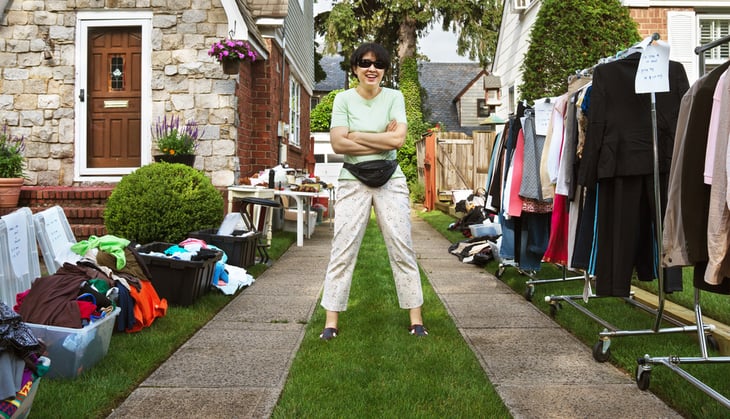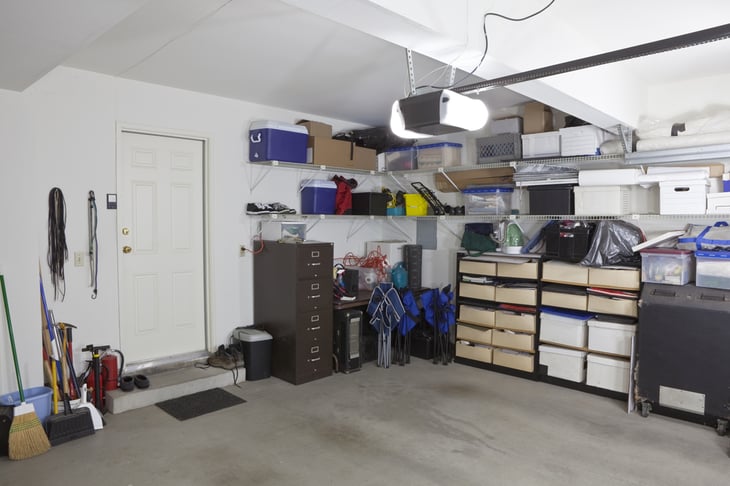Americans buy — and keep — a lot of stuff. A self-storage facility can help you house all of those items.
But rental costs can be high: Is it worth it to rent space so you can keep things you rarely see or use?
If you’re a pack rat, take a long, hard look at what’s going into your storage unit. Money Talks News financial expert Stacy Johnson says he spent more than $18,000 over a decade to store stuff worth only a fraction of that amount. Don’t follow his example!
Instead, turn to these 10 tips for how to save:
1. Get more organized

It’s true that time is money, and going through all your stuff is a chore. But do you want to be paying rent on junk you’re never going to use again because you were too lazy to sort it out?
Take a weekend, and cull the clutter. You’ll feel better and save money. Hint: If you haven’t touched it in more than a year or forgot you even own it, odds are you don’t need it.
2. Sell or donate stuff

If you’ve got a lot of property in good condition that you no longer need, maybe a yard sale is in order. Too much bother? Donate goods to charity.
3. Weigh replacement costs

Some people keep everything, thinking, “I might need this someday.” Others purge so zealously they toss or sell stuff — especially furniture — that they’ll end up buying again. Be realistic, because either mistake can be costly.
4. Rent the smallest space you can get away with

Storage units come in various sizes. Practice your real-life Tetris skills and see what fits in there. You can always upgrade if you need to.
If you’re looking at long-term storage, you probably don’t need to leave space to access and reach everything, so pack tight. Put the stuff you’ll need to pull out soonest closest to the door.
5. Store with friends or family

If you know someone with extra garage space, ask if they’ll share. They might be more receptive to the idea if you offer to pay a few bucks a month — still cheaper than the commercial option. Better yet, maybe you have something they can borrow and use until you have space to reclaim it.
6. Compare with cost of living space

Sometimes, storage space makes the most financial sense. If you have to upgrade to an apartment with another bedroom to store your stuff, $50 a month for storage space beats a $200 per month rent hike, to say nothing of the hassle of moving.
If you’re living in a condo or townhouse with a homeowner’s association, ask if they have storage space for rent — it might be cheaper than public storage units.
7. Shop around

Compare rates and pit rentals against each other. SelfStorage.com lets you search by ZIP code for prices.
8. Check discounts

Some storage companies offer “move-in” specials with discounted rates, or maybe one month free. There may be discounts for seniors or members of the military.
9. Buy your own storage

Check the price of other self-storage options. You may be able to fit everything in your garage by buying a few shelving units and plastic bins, or a standalone shed. These items may cost as much as a couple months of storage rental, but save money in the long run.
10. Buy less stuff

The best way to reduce future storage costs is to own less. That sounds obvious, but most of us are a lot better at buying goods than losing them. Be a minimalist, not a hoarder. Your house will look better, you’ll feel better and your bank account will thank you for it.
How do you handle stuff that piles up at your house? Share with us in comments below or on our Facebook page.
Jim Gold contributed to this article.





Add a Comment
Our Policy: We welcome relevant and respectful comments in order to foster healthy and informative discussions. All other comments may be removed. Comments with links are automatically held for moderation.